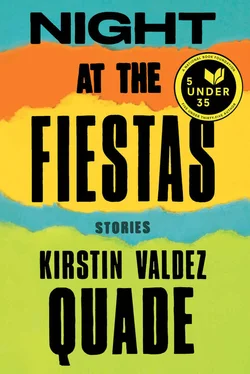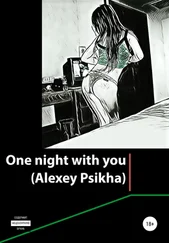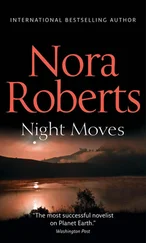Daisy barked, sharp, relentless.
Ruben rose in a sudden roar, grabbed the dog in his thick hands. “ Shut the fuck up!”
Daisy squealed when he threw her across the great room. Her body hit the window with a thud, dropped to the ground in a gray heap. The thick pane didn’t break. When she stood, her black eyes were open, glassy, and she breathed in quick shallow breaths.
There was blood, just a little, in the fur at her ear. Daisy made her way unevenly toward Margaret, tags jingling, then stopped and tipped her head as if perplexed.
Margaret made her move: swept Daisy into her arms, ran across the tile to the heavy door, pushed it open, and burst into the cold night. Point-seven miles to the road. Her feet tore on the stones of the driveway as she ran.
After a time, she realized she was sobbing. She stopped and looked up the hill at the lit house, clutching the dog’s little body to her chest, her breath ripping through her. The scent of piñon was sharp and acrid in the cold air.
Above, the bright window hung against the darkness like a canvas on a gallery wall, framing Carmen and her son. They were motionless, as minutely wrought as figures in a medieval miniature. His face was buried in her lap, and she bent over him, so close their heads were nearly touching, the two of them as destructive and unstoppable as any force of nature.

MY NAME IS MY GRANDMOTHER’S: OFELIA ALMA ZAMORA. I am eleven years old and too young to die, but I am dying nonetheless. I have been dying since the day my mother went away. I’ve been to doctors — to the clinic in Estancia, and all the way to Albuquerque — but they take my temperature, knead my stomach, check my throat, and tell my grandfather the same thing: perhaps it is a minor infection or virus, one of the usual brief illnesses of childhood, and they see nothing seriously wrong. They don’t know about the ojo, the evil eye.
There is no one left in this town who can cure me, so for now I sit at the edge of the yard, my feet in the road, turning a piece of broken asphalt in my hands, in case a stranger passes. Are you a healer? I’ll ask her. I think of how it will be when I find her, how when she lays her hands on my head I’ll close my eyes and feel the blessing pass through me like fire.
I imagine this, knowing I can’t be cured, knowing I couldn’t bear to be.
I’M WAITING FOR MY GRANDFATHER, relieved because today, finally, he has gotten up and dressed for the city: plaid shirt buttoned all the way up his thin tortoise neck, bolo tie with the silver dollar set in a ring of turquoise. Face scrubbed, white hair combed in lines over the brown crown of his head. He’s in the house rinsing our coffee cups and wiping toast crumbs from the oilcloth.
I am ready, too, wearing my blue dress (though the sleeves no longer cover my wrists), white tights (dingy and loose at the knees), and my sneakers. In my pocket is the address for the VA clinic, which I have copied from some papers in my grandfather’s desk. This morning my grandfather braided my hair and fastened the ends with rubber bands from the newspaper. Because I’m tall, I sat at the kitchen chair, and he leaned over me, his trembling fingers slowly working the braid into shape. When I was younger, he would tease me as he combed out the knots, pretend to find things in the tangled mass. “A jackrabbit!” he’d cry. “My pliers!” I’d laugh as the yank of the comb brought tears to my eyes.
Behind me, the porch sags under the weight of the refrigerator and the gyrating washing machine on legs that my grandparents bought during a good year in the fifties. There are places we cannot step, because the boards are gray and fragile with rot. “I’ll fix the porch,” my grandfather says. “One day I’ll find the time and shore it up.” But the truth is that for years he has been unable to do jobs that he once did without even thinking.
Every day for a week I have dressed for Albuquerque, and every day he has shivered and shaken his head. “Not today, mi hijita. Perhaps the weather will be better tomorrow.”
He spent those mornings in his pajamas, blanket pulled tight around him. It’s late spring, the sky above the swaying cottonwoods so blue it has a texture, but he wore his wool cap, sweating. He would not let me go to the neighbors or the priest.
But today he is up and dressed, preparing for our monthly trip to Albuquerque. We will shop for what we need, and we will have lunch in a restaurant, and my grandfather will see the doctor, though he doesn’t know this yet.
I touch the slip of paper in my pocket. I catalogue every detail of my grandfather as he is now, as if by leaving nothing out I can keep him safe. I catalogue the smooth, pink mole on his neck, the brown spots like smudged fingerprints on his temples. His eyebrows, gray and wiry and curled. Often a drop of clear fluid hangs from the end of his nose. My grandfather’s nose is large now, almost a beak, but it wasn’t always that way. In my cigar box, I have a picture of him as a slight, handsome soldier in the army, his features delicate: serious mouth, light eyes, black lashes.
THERE ARE A FEW families still in our town — mostly old people, no other children — and those of us who are left are used to the high weeds, the crumbling houses of neighbors, the plaster that falls like puzzle pieces. The exposed mud bricks dissolve a little more each time it rains.
Across the road from where I sit is the dance hall that belonged to dead Uncle Fidel. It hasn’t been a dance hall since long before I was born — hasn’t been anything but empty and overgrown with branches — but there is still the green silhouette of a bottle painted on the cracked wooden door. When he was young, my grandfather tells me, there were bailes every Saturday night, and, if he’d had a drink and his shyness left him, he would dance until he was breathless and sweaty, twirling the girls, clapping and stomping with the rest of the town through cuadrillas and polcas. In those days they sprinkled water on the ground to keep the dust down, and dirt clotted on the black toes of his shoes.
At night I imagine I can hear the accordions and fiddles and guitars across the street, but it takes effort, and soon I am weary and overcome with the sense that I have arrived too late. I long for that other Cuipas, for the families and the river. I want to have known my grandfather as he was then, to have been with him all those long years.
THE SUN STRETCHES ALONG the road and warms my legs in my tights. If I turn my face to its heat, I must close my eyes, and in the drowsy redness behind my eyelids I remember what makes me uneasy. Last night I lay stiff in my bed — which I used to share with my mother, which I imagine still smells of her — kept awake not by the ojo, but by a sound I’d never heard before. Instead of my grandfather’s steady sleeping breath from across the kitchen and through the open door of his bedroom, I could hear a rattling, chattering gurgle. The sound, so much like an animal — but an animal I have never heard and cannot picture — kept me tense and afraid until dawn, when my grandfather stirred, his bed creaked, and his slow footsteps assured me that he was okay.
SOME DAYS I GO to school, some days I don’t; like a fever, the ojo comes and goes. I try not to bother my grandfather with it. When I am well enough, I ride the bus into Estancia, listen to what they tell me. I buy my lunch in the cafeteria and sit with the younger children, who don’t ask questions when I am silent.
My grades aren’t good. I struggle to form letters on the page. Three times a week I’m called from the classroom by the resource teacher, a young woman — as young, perhaps, as my mother — whose skirt swishes against her hose when she walks. She and I sit together under a fluorescent light in a room that was intended to be a closet. She shows me flashcards, asks me to write sentences, tries to make me explain what I am thinking. I tilt my head. When she tires of waiting, she’ll pat my hand and sigh and give me a chocolate wrapped in red foil. I learned this during my time at school: they want to replace the past with their rhymes and procedures, their i before e and carry the one .
Читать дальше













